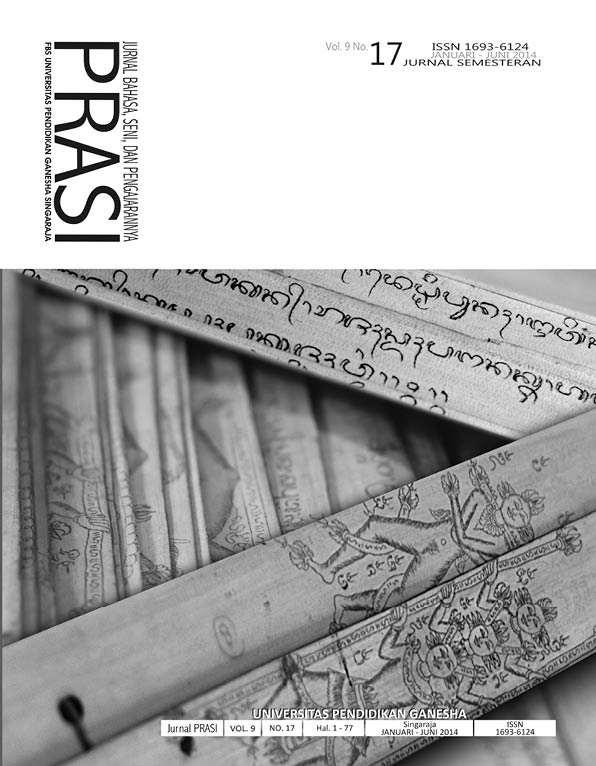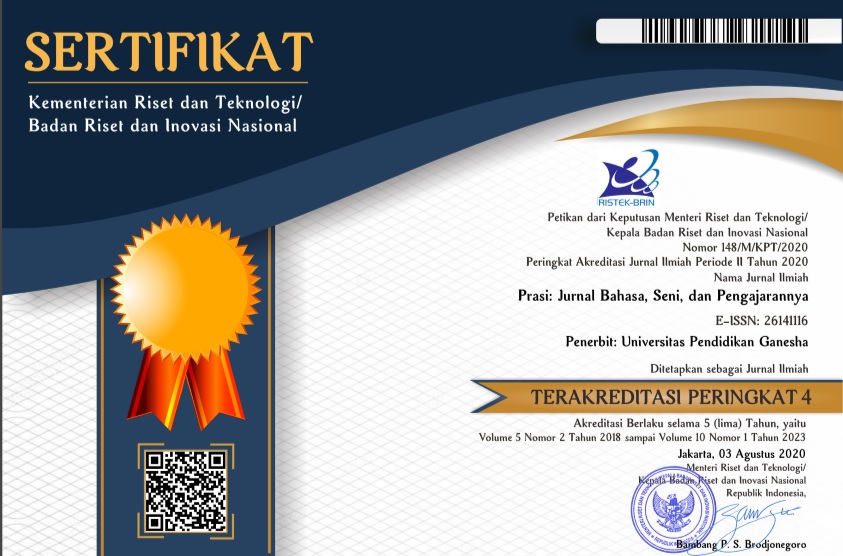REPRESENTASI REVOLUSI INDONESIA DALAM PUISI “RAPAT MENGGANYANG 7 SETAN” KARYA H.R. BANDAHARO
DOI:
https://doi.org/10.23887/prasi.v9i17.8926Abstract
The present study aimed to examine the representation of Indonesian revolution in the poetry “Rapat Mengganyang 7 Setan” written by H. R. Bandaharo. The meanings of the poetry are uncovered by investigating the mutual relationship between the poetry and the work and speech of President Soekarno as well as the written work of D.N. Aidit. The study used a qualitative research design, and the data were analyzed by using parallel reading method. The study results showed that the representation of Indonesian revolution is realized through the theme and diction of the poetry which are derived from sayings/slogans during the revolution time. The mutual relationship between the poetry “Rapat Mengganyang 7 Setan” and President Soekarno’s speech and D.N. Aidit’s written work are based on Mukadimah Lekra (Lekra Preamble), Community’s Culture Conception, and method of combination principle 1-5-1. The representation of Indonesian revolution in the poetry shows literature as part of political movement to reach the goal of Indonesian revolution, that is, just and prosperous community.
Key words: representation, Indonesian revolusion, new historicism
Downloads
Published
Issue
Section
License
Authors who publish with Prasi agree to the following terms:- Authors retain copyright and grant the journal the right of first publication with the work simultaneously licensed under a Creative Commons Attribution License (CC BY-SA 4.0) that allows others to share the work with an acknowledgment of the work's authorship and initial publication in this journal
- Authors are able to enter into separate, additional contractual arrangements for the non-exclusive distribution of the journal's published version of the work (e.g., post it to an institutional repository or publish it in a book), with an acknowledgment of its initial publication in this journal.
- Authors are permitted and encouraged to post their work online (e.g., in institutional repositories or on their website) prior to and during the submission process, as it can lead to productive exchanges, as well as earlier and greater citation of published work. (See The Effect of Open Access)


.png)
.png)









